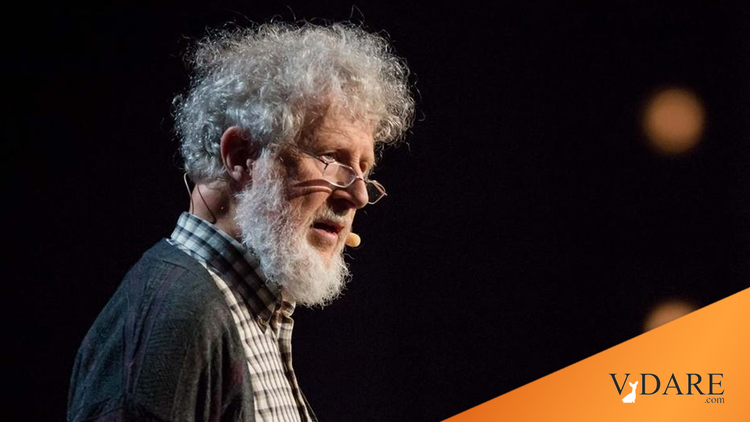
By Steve Sailer
02/09/2009
For several years, I've been pointing out that something is going wrong with the British, at least among younger British males. And it’s not just immigration — the white working class in Britain has become a lot drunker and more petty crime-inclined than their distant cousins in the U.S. white working class. And the British upper classes are dropping their traditional elite interests for the same prolefeed — the telly, footer, and binge-drinking — as the lower orders.
From the London Telegraph:
British teenagers have lower IQs than their counterparts did 30 years ago Teenagers in Britain have lower IQ scores than their counterparts did a generation ago, according to a study by a leading expert.
By Richard Gray, Science Correspondent
Tests carried out in 1980 and again in 2008 show that the IQ score of an average 14-year-old dropped by more than two points over the period.Among those in the upper half of the intelligence scale, a group that is typically dominated by children from middle class families, performance was even worse, with an average IQ score six points below what it was 28 years ago.
The trend marks an abrupt reversal of the so-called "Flynn effect" which has seen IQ scores rise year on year, among all age groups, in most industrialised countries throughout the past century.
Professor James Flynn, of the University of Otago in New Zealand, the discoverer of the Flynn effect and the author of the latest study, believes the abnormal drop in British teenage IQ could be due to youth culture having "stagnated" or even dumbed down.
He used data gathered in IQ tests on UK children to examine how the country’s cognitive skills have changed over time.
He found that while children aged between five and 10 saw their IQs increase by up to half a point a year over the three decades, teenagers performed less well.
"It looks like there is something screwy among British teenagers," said Professor Flynn. "While we have enriched the cognitive environment of children before their teenage years, the cognitive environment of the teenagers has not been enriched.
"Other studies have shown how pervasive teenage youth culture is, and what we see is parents' influence on IQ slowly diminishing with age.
"Up until the age of nine and ten, the home has a really powerful influence, so we can assume parents have been providing their children with a more cognitive challenging environment in the past 30 years.
"After that age the children become more autonomous and they gravitate to peer groups that set the cognitive environment.
"What we know is that youth culture is more visually orientated around computer games than they are in terms of reading and holding conversations."
He added that previous studies have shown that IQ increases as teenagers move into adulthood, entering university or starting work.
Professor Flynn also believes that the larger drop in IQ among the upper half of the ability range could be due to effects of social class.
He said: "IQ gains are typically correlated by class, but the results in this case are very mixed. Maybe the rebellious peer culture of the lower half of British society has invaded the peer culture of the upper half.
"It could be the classes in the upper half were insulated from this rebellious peer culture for a time, but now it is universal."
His research, which is presented in a paper published online by the journal Economics and Human Biology, also refutes the commonly held belief that increases in IQ over time are a result of improving nutrition. [Well, British teenagers in 1980 were pretty well-fed compared to 2008, so I don’t think you should generalize from these two data points to rule out nutritional improvements as raising IQ in other times and places.] …
Professor Flynn’s study was conducted using a respected IQ test known as Raven’s Progressive Matrices. Questions involve matching a series of patterns and sequences, so that even people with no education can take the test.
This is a content archive of VDARE.com, which Letitia James forced off of the Internet using lawfare.